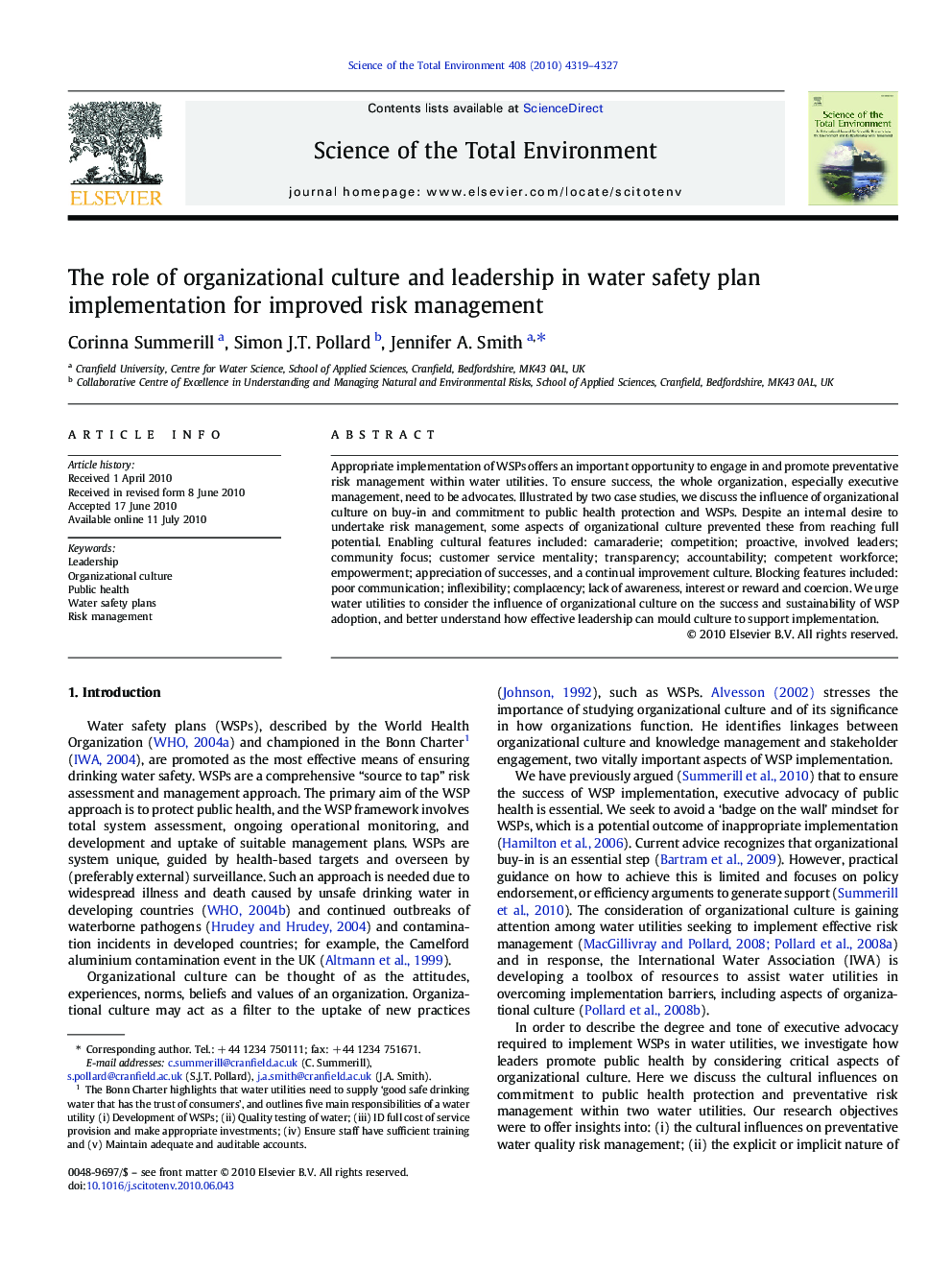| Article ID | Journal | Published Year | Pages | File Type |
|---|---|---|---|---|
| 4430882 | Science of The Total Environment | 2010 | 9 Pages |
Appropriate implementation of WSPs offers an important opportunity to engage in and promote preventative risk management within water utilities. To ensure success, the whole organization, especially executive management, need to be advocates. Illustrated by two case studies, we discuss the influence of organizational culture on buy-in and commitment to public health protection and WSPs. Despite an internal desire to undertake risk management, some aspects of organizational culture prevented these from reaching full potential. Enabling cultural features included: camaraderie; competition; proactive, involved leaders; community focus; customer service mentality; transparency; accountability; competent workforce; empowerment; appreciation of successes, and a continual improvement culture. Blocking features included: poor communication; inflexibility; complacency; lack of awareness, interest or reward and coercion. We urge water utilities to consider the influence of organizational culture on the success and sustainability of WSP adoption, and better understand how effective leadership can mould culture to support implementation.
